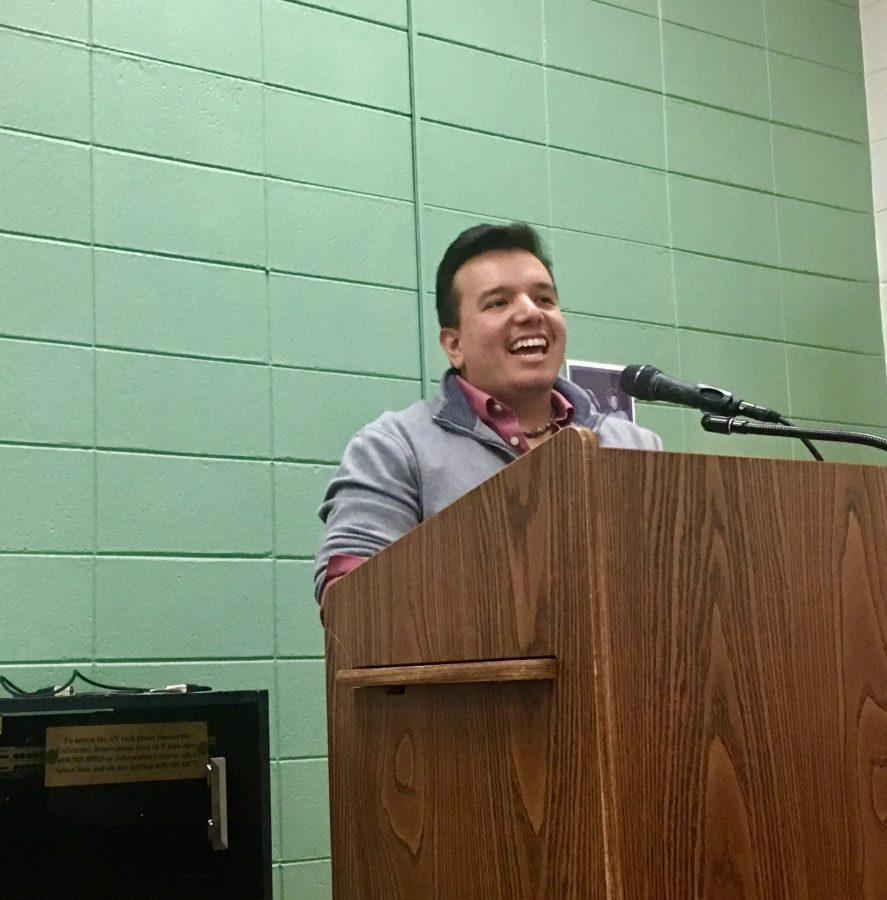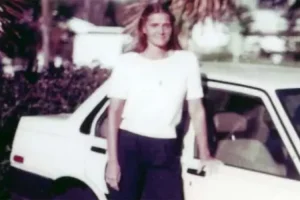Immigration: the meaning, the history, the impact
November 7, 2016
The UW-La Crosse Campus Climate office aimed to educate students on immigration Friday afternoon. The teach-in was held in the Cartwright Center and was facilitated by professors, faculty, and students. Facilitators felt the need to address the topic due to it being a hot-button issue during this election cycle, and felt that accurate data and alternate perspectives are not always highlighted. Dr. Julia McReynolds-Perez, Dr. Bee Lo, graduate student Jake Dyer, and undergraduate student Cristian Noriega were presented as panelists for the immigration teach-in.
Dr. McReynolds-Perez was the first to present at the event. The Sociology professor first arrived in the United States from Argentina when she was five years old and, at the time, did not speak any English. Before teaching, she had lived in various states across the nation working as an interpreter and translator. McReynolds-Perez wanted to clarify some facts surrounding immigration, stating there is “lots of bad information out there.” The first immigration myth she outlined was that the U.S. has never had to assimilate so many people before when, in fact, the highest number of immigrants was recorded between 1860 and 1920. Next, she confronted the criminal stereotypes that many immigrants face by sharing that data shows undocumented immigrants as actually more law-abiding and immigrants in general as being equally successful compared to their native-born counterparts. In addition, fighting the “freeloader” myth, McReynolds-Perez added that immigrants contribute $1 billion to both taxes and social security every year.
Dr. Bee Lo shared his experience as a Hmong refugee, who moved to the United States at 11 years old. He explained the Hmong people’s relationship with the United States government, explaining how the U.S. military got the Hmong people into the Vietnam War only to then abandon most of them when the U.S. withdrew. “If you talk to the American government,” said Dr. Bee Lo, “you’ll get a different story but this is my story.” He then explained that moving to a different country is not always a choice, especially the situation his family was put into. Cristian Noriega, UWL undergraduate student, explained his family’s long and emotional immigration process. His family had filed for immigration when his father was just 8 years old, and heard results 13 years later. Noriega stressed that immigration is more about time than money, especially if where you are is not safe.
Jake Dyer, graduate student in the Student Affairs program at UWL, shared a very different immigration experience. “I have social identities that have helped me navigate this system,” explains Dyer. He shared how he was allowed to emigrate from the United Kingdom more quickly than others, due to his marrying a native-born woman and being able to afford a lawyer. However, his lawyer had also explained that because the couple had come from “similar countries,” they had no reason to worry. After the teach-in, attendees were able to ask questions and hold conversations with the panelists about their experiences, hoping to bring more clarity and equity to the conversation on immigration.






